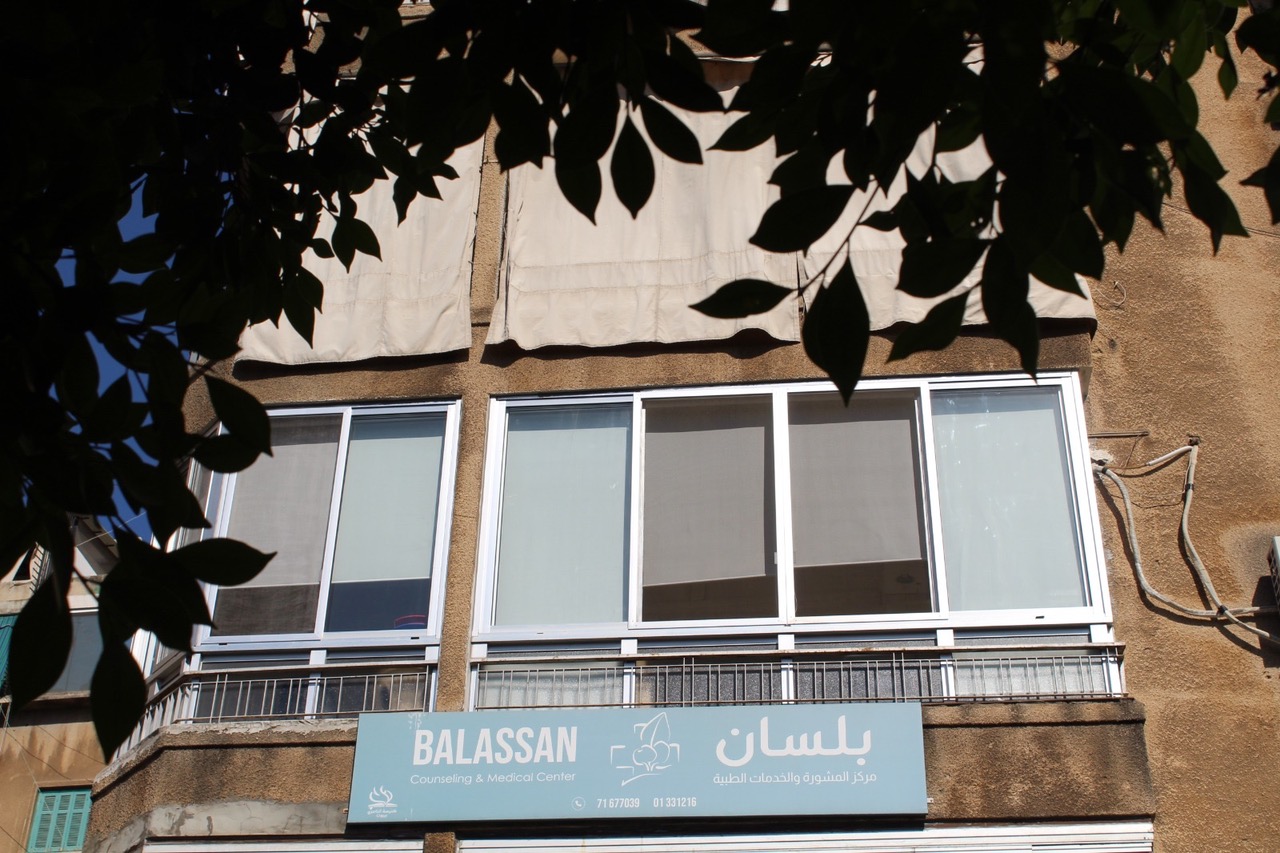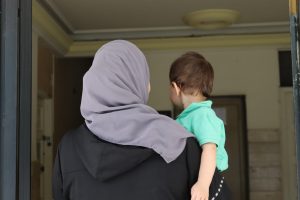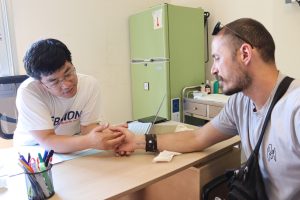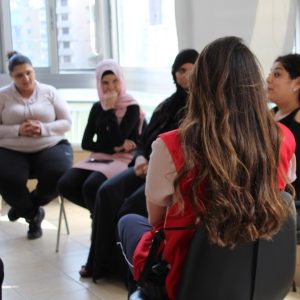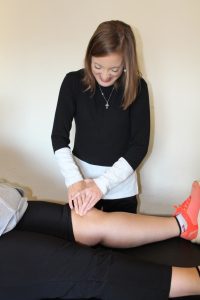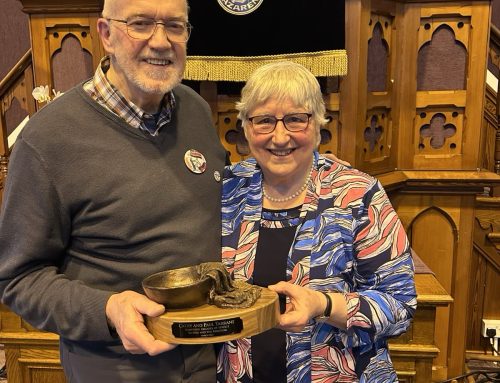Jeremiah, the prophet, mourned over the state of his people that “The harvest is past, the summer ended, And we are not saved” (8:20)
Then he cried out, “Is there no balm in Gilead?!” (8:22). The image is vibrant. A desperate father or mother travels many days to the marketplace of Gilead, renowned for being a major stop on the trade routes. They are looking for balm for their ailing child. After searching hopelessly all day, they sink to the ground in a cry of anguish. Is there no balm in Gilead?!
Over the past 14 years, more than two and a half million Syrian refugees flooded into the country of Lebanon. Over a million people moved on to other countries, but an estimated one million still remain, and more continue to seek safety there to this day. One of their biggest challenges is finding appropriate medical care.
Following the economic downfall of October 2019 and the horrific Beirut port explosion of August 2020, the Lebanese population has been increasingly facing similar challenges in finding the funds for medical care. Add to that, Lebanon is already host to thousands of migrant workers who come in from parts of Africa and far East Asia.
In a sense, over the last several years, more than half the population of Lebanon—locals, refugees, and migrant workers—have been groaning under the scepter of economic distress and a failing public medical system.
There is no balm in Gilead.
In October 2020, the Beirut Church of the Nazarene expanded a small ministry that checked on patients in their homes into a clinic close to its church in eastern Beirut called Balasaan, the Arabic word for balm from Jeremiah 8:22.
The church community knew early on it wanted to offer physical and psychological care, understanding that many of the people it is serving have had traumatic experiences. Therefore, the center includes 10 specialists, two of whom are psychologists and psychiatrists. The clinic also offers the services of a physical therapist, general practitioner, pediatrician, orthopedic doctor, nutritionist, and gynecologist, in addition to two administrative staff and a resident nurse.
The church has served 400 patients from different nationalities. Approximately 70 percent of patients are Lebanese, 25 percent are Syrian, and 5 percent are from other nationalities. This data reflects the population of the local area in eastern Beirut, where the church and clinic are located.
Over the past four years, patients paid USD 0.70 to register at the clinic, and the fee will increase to USD 1.10 starting in the fall of 2024. Then, the patients can see any specialist free of charge.
The clinic covers 50 percent of most medical tests at an external partner clinic and 20 percent of the cost of any medicine sourced from a pharmacy.
Ahlam* is a Syrian mother who visited Jenny, a physical therapist, for some body aches. While in conversation with Jenny, who also directs the clinic, it became clear that Ahlam was experiencing trauma from the sonic bombs that Israel had been letting off over Beirut over the past 10 months. Those loud booms had awakened a trauma reaction in Ahlam’s body after living through the Syrian war. Jenny offered to pray for Ahlam, who was pleasantly surprised that a health care center also offers prayer.
She accepted the offer. Jenny explained that when she was done praying, Ahlam “simply looked up at me and smiled” and later reported feeling calmer. The act of praying with her in love had calmed her nervous spirit.
The clinic staff explained that offering prayer alongside physical and mental care seemed to be a recurrent avenue of building relationships and helping the patients feel loved and cared for.
Andrea* is a 40-year-old woman from the Philippines. A local nongovernment organization (NGO) that works with migrant workers had sent her to Balasaan clinic for care.
She visited the general doctor for tests and found out that she had breast cancer. She was very frightened, especially since she did not have any family in Lebanon and her official papers had been stolen from her a while back.
Andrea underwent surgery to treat her cancer. The staff at the clinic and Andrew, pastor of the Beirut Church of the Nazarene, came to pray for her a day before the operation. As the church and clinic staff stood around her in prayer, she broke down in tears.
The operation was a success! She has since kept in contact with the clinic and visited again to thank the staff for all their support. She found a balm in a foreign land. The staff shared that even more than their joy for the health of Andrea, they too gained valuable experience in liaison with NGOs and hospitals to fund her medical operation.
The staff understands the importance and privilege of the dual spiritual and physical care they provide.
“In Balasaan, I practice medicine, but I can also use my God-given gifts in the best possible way,” explained Jenny. “I feel I can direct my practice in a holistic manner. I am able to offer them medical help and also prayer.”
Balasaan is uniquely situated to respectfully and lovingly care for the marginalized. It is certainly not the only clinic in Beirut, but the church has, in a prayerful spirit, created a space of deep healing for the vulnerable.
Alia* is a 6-year-old Sudanese girl living in Beirut with her mother, who is a migrant worker. Their father stayed behind in Sudan.
Alia had a problem with her lungs, and according to the doctor, this was a unique case in Lebanon. She had a 10 percent chance of surviving. Alia needed to have the operation as soon as possible because of the risk of an infection spreading in her body.
Alia’s mother had already visited the clinic several times for different check-ups, and she was always resistant to prayer. On the day that she found out about her daughter’s sickness, she accepted prayer. Pastor Andrew came and prayed with the family, anointing the young girl with oil.
On the day of the surgery, the clinic staff fasted and prayed. The operation was a complete success, and Alia recovered without any complications. Alia has
continued coming to the doctor for check-ups, and her mother has expressed her deepest gratitude. Alia’s father called in from Sudan to thank the church and clinic for their love.
Jenny noticed that a certain Syrian family that lives in the Nabaa area, the northern slums of Beirut, pays for transportation to visit the clinic regularly. She
asked the parents why they wouldn’t choose to seek care in any of the many clinics around them in Nabaa.
“The pediatrician here in Balasaan was the first pediatrician who treated our kids with respect and love,” explained the parents.
In a country where the local Lebanese population is increasingly hostile towards the Syrian refugees, Balasaan is a space of acceptance and equal medical and mental care for all people.
The political and social situation in Lebanon continues to worsen. The inhabitants hold tight, dreading further economic downfalls and wars. But the Balasaan clinic shines through as a place of calm in the midst of this storm.
Alexandra, co-director of the clinic, shares her testimony of being overwhelmed by the issues that she sees in the patients who visit the clinic. But she feels strengthened by the services the clinic offers.
“What continues to give me strength is the fact that we help them and that we show them God’s love,” Alexandra said. This is not just a job for me but a place to show God’s grace. I have noticed that I, too, have grown in grace while working in this place.”
Many summers and winters have passed, and it feels like Lebanon is stuck in never-ending political and economic turmoil. But the church and clinic workers wait. And while they wait, they do the work of Christ.
A few verses after Jeremiah issues a call of distress for the absence of a balm, and in the midst of pronouncing judgment, we have the calming words of Jeremiah 9:23-24.
“Thus says the Lord: ‘Let not the wise man boast in his wisdom, let not the mighty man boast in his might, let not the rich man boast in his riches, but let him who boasts boast in this, that he understands and knows me, that I am the Lord who practices steadfast love, justice, and righteousness in the earth. For in these things, I delight, declares the Lord.’”
We hold on to this hope that as we practice steadfast love, mercy, and healing, we delight the Lord, the church, the patients of Balasaan Clinic, and the world.
If you want to give and support the work in Lebanon visit: ncm.org/hopeforlebanon
-Story by Joanna Nasrallah and Nabil Habiby, reshared from NCM Magazine
-Photos by Alexandra Saliba
